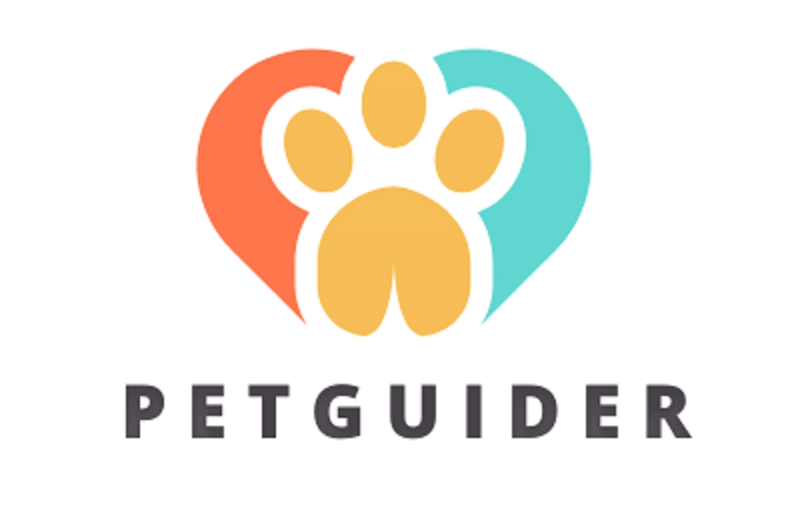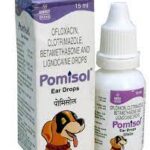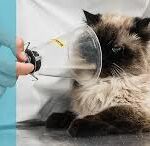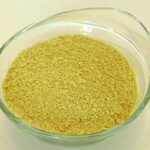The Hidden Dangers of Pretzels
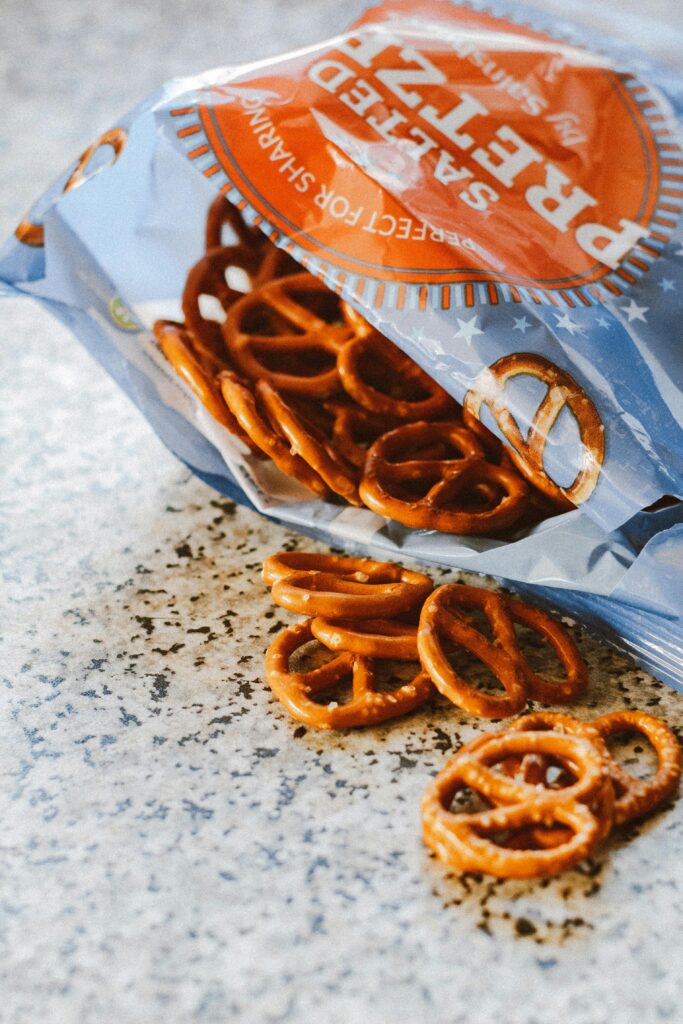
While talking about the effects of pretzels on canine health, may seem like a harmless snack, especially when compared to more obvious dangers like chocolate or grapes, they can still pose risks to your dog’s health. One of the primary concerns with pretzels is their high salt content. Dogs have different nutritional requirements than humans, and their bodies are not equipped to handle large amounts of salt.
Table of Contents
Excessive salt intake can lead to a condition called salt poisoning or hypernatremia in dogs. Symptoms of salt poisoning include excessive thirst, vomiting, diarrhea, lethargy, tremors, and seizures. In severe cases, it can even be fatal.
Understanding Sodium Toxicity in Dogs
Salt poisoning occurs when a dog consumes too much salt, either through eating salty foods like pretzels or ingesting products containing high levels of sodium, such as homemade playdough or rock salt. The body’s electrolyte balance becomes disrupted, leading to dehydration and other health issues.
Dogs with certain pre-existing conditions, such as kidney disease or heart problems, are at an increased risk of complications from salt poisoning. Additionally, puppies and senior dogs may be more susceptible to the effects of excess salt due to their developing or aging bodies.
The Importance of Portion Control
Even if you occasionally indulge your dog with a small piece of pretzel, it’s crucial to practice moderation. A single pretzel stick might not seem like much, but it can contain a significant amount of salt, especially if it’s coated in salt crystals or salted pretzel toppings.
As a rule of thumb, it’s best to avoid feeding your dog salty snacks altogether. If you do decide to offer your dog a small piece of pretzel as a treat, make sure to break off a tiny portion and monitor their reaction closely. Keep in mind that what may seem like a harmless treat to you could have serious consequences for your furry friend.
Signs of Salt Poisoning in Dogs
If you suspect that your dog has consumed too much salt or is experiencing symptoms of salt poisoning, it’s essential to seek veterinary care immediately. Some signs to watch out for include:
- Excessive thirst: Your dog may drink more water than usual and seem unable to quench their thirst.
- Vomiting and diarrhea: Salt poisoning can irritate the stomach lining, leading to vomiting and diarrhea.
- Lethargy: Your dog may seem unusually tired or sluggish and may not want to engage in normal activities.
- Tremors and seizures: In severe cases, salt poisoning can affect the nervous system, leading to tremors or seizures.
Preventing Salt Poisoning in Dogs
The best way to prevent salt poisoning in dogs is to avoid feeding them salty foods like pretzels altogether. Instead, opt for healthier alternatives that are specifically formulated for canine consumption. If you’re unsure whether a particular food is safe for your dog, it’s always best to err on the side of caution and consult with your veterinarian.
Exploring the Effects of Pretzels on Canine Health
The Hidden Dangers of Pretzels

While pretzels may seem like a harmless snack, especially when compared to more obvious dangers like chocolate or grapes, they can still pose risks to your dog’s health. One of the primary concerns with pretzels is their high salt content. Dogs have different nutritional requirements than humans, and their bodies are not equipped to handle large amounts of salt.
Excessive salt intake can lead to a condition called salt poisoning or hypernatremia in dogs. Symptoms of salt poisoning include excessive thirst, vomiting, diarrhea, lethargy, tremors, and seizures. In severe cases, it can even be fatal.
Understanding Sodium Toxicity in Dogs
Salt poisoning occurs when a dog consumes too much salt, either through eating salty foods like pretzels or ingesting products containing high levels of sodium, such as homemade playdough or rock salt. The body’s electrolyte balance becomes disrupted, leading to dehydration and other health issues.
Dogs with certain pre-existing conditions, such as kidney disease or heart problems, are at an increased risk of complications from salt poisoning. Additionally, puppies and senior dogs may be more susceptible to the effects of excess salt due to their developing or aging bodies.
The Importance of Portion Control
Even if you occasionally indulge your dog with a small piece of pretzel, it’s crucial to practice moderation. A single pretzel stick might not seem like much, but it can contain a significant amount of salt, especially if it’s coated in salt crystals or salted pretzel toppings.
As a rule of thumb, it’s best to avoid feeding your dog salty snacks altogether. If you do decide to offer your dog a small piece of pretzel as a treat, make sure to break off a tiny portion and monitor their reaction closely. Keep in mind that what may seem like a harmless treat to you could have serious consequences for your furry friend.

Signs of Salt Poisoning in Dogs
If you suspect that your dog has consumed too much salt or is experiencing symptoms of salt poisoning, it’s essential to seek veterinary care immediately. Some signs to watch out for include:
- Excessive thirst: Your dog may drink more water than usual and seem unable to quench their thirst.
- Vomiting and diarrhea: Salt poisoning can irritate the stomach lining, leading to vomiting and diarrhea.
- Lethargy: Your dog may seem unusually tired or sluggish and may not want to engage in normal activities.
- Tremors and seizures: In severe cases, salt poisoning can affect the nervous system, leading to tremors or seizures.
Preventing Salt Poisoning in Dogs
The best way to prevent salt poisoning in dogs is to avoid feeding them salty foods like pretzels altogether. Instead, opt for healthier alternatives that are specifically formulated for canine consumption. If you’re unsure whether a particular food is safe for your dog, it’s always best to err on the side of caution and consult with your veterinarian.
Exploring Safe and Nutritious Treats for Your Canine Companion
The Quest for Healthy Dog Treats
As dog owners, we’re constantly on the lookout for treats that not only please our furry friends but also contribute to their overall health and well-being. While pretzels may be off the table due to their high salt content, there are plenty of safe and nutritious alternatives to consider. Let’s explore some healthy snack options that your dog is sure to love.
1. Homemade Dog Treats
One of the best ways to ensure that your dog is getting high-quality, nutritious treats is to make them yourself. Homemade dog treats allow you to control the ingredients and avoid any harmful additives or preservatives. There are countless recipes available online for homemade dog biscuits, chewy treats, and frozen snacks that are easy to make and delicious for your pup.
2. Fruits and Vegetables
Many fruits and vegetables are safe for dogs to eat and can make excellent treats. Some dog-friendly fruits include blueberries, strawberries, watermelon, and bananas. These fruits are low in calories and packed with vitamins, minerals, and antioxidants. Similarly, vegetables such as carrots, green beans, and peas are crunchy and satisfying for dogs to chew on, making them great snacks for promoting dental health.
3. Commercial Dog Treats
If you prefer the convenience of store-bought treats, there are plenty of commercial options available that are specifically formulated for canine consumption. Look for treats that are made with high-quality ingredients and free from artificial colors, flavors, and preservatives. Many companies offer natural, grain-free, and organic treats that cater to various dietary preferences and restrictions.
4. Freeze-Dried Meat Treats

For dogs who crave a meaty snack, freeze-dried meats are an excellent option. These treats are made by removing moisture from raw meat, preserving its nutritional integrity and flavor. Freeze-dried meats come in a variety of flavors, including chicken, beef, lamb, and fish, making them irresistible to most dogs. They’re also lightweight and shelf-stable, making them perfect for on-the-go or travel snacks.
5. Dental Chews
In addition to being delicious, some treats are designed to promote dental health by reducing plaque and tartar buildup. Dental chews come in various shapes, sizes, and flavors, and they’re formulated to help clean your dog’s teeth and freshen their breath. Look for dental chews that are vet-approved and designed for your dog’s size and chewing habits to ensure they’re both safe and effective.
Conclusion
While pretzels may not be suitable for dogs due to their high salt content and potential for salt poisoning, there are plenty of other treats available that are both safe and nutritious. Whether you prefer homemade goodies, fresh fruits and vegetables, commercial treats, freeze-dried meats, or dental chews, there’s something out there to satisfy every dog’s taste buds and dietary needs.
By offering your dog a variety of healthy treats in moderation, you can help keep them happy, healthy, and well-nourished for years to come. Remember to always monitor your dog’s intake and consult with your veterinarian if you have any concerns about their diet or nutrition.
